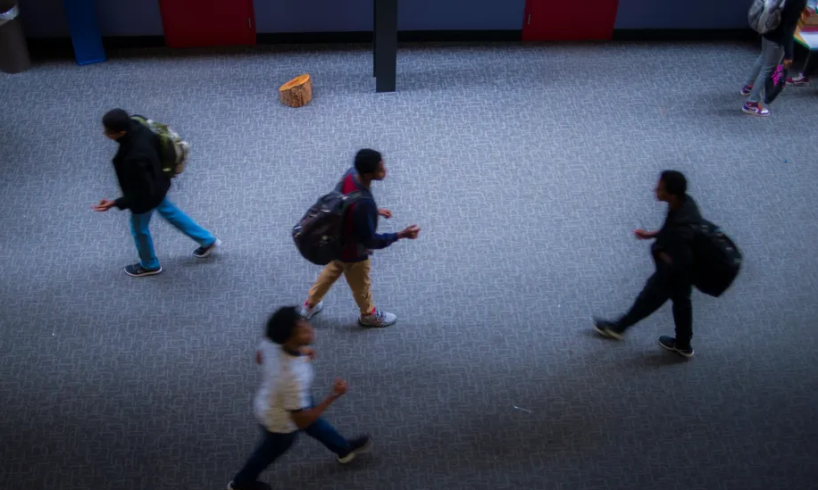
More Colorado students than ever are enrolled in charter schools, and those students posted higher test scores than those of students in district-run schools during a pandemic-disrupted school year.
At the same time, Colorado charter schools continue to enroll students with disabilities at some of the lowest rates in the nation, and many parents don’t think charter schools will accommodate kids with specialized education plans related to disabilities.
Two reports out this week point to the potential promise of charter schools and changes that still need to happen for them to function like truly public schools, open to all students.
More than 15% of all Colorado students now attend charter schools, putting the state third behind only Arizona and Washington, D.C., for proportion of charter school enrollment, according to a report from the Keystone Policy Center, a nonprofit that works on a wide range of policy issues. Charter school enrollment rose during the pandemic even as enrollment in traditional district-run schools declined.
The analysis excluded online charter schools, which also attracted more students during the pandemic.
“Enrollment didn’t drop in the charters, and it actually grew, which suggests something about how the schools were interacting with their communities,” Senior Policy Director Van Schoales said.
Colorado did not closely track whether schools offered remote or in-person learning in the 2020-21 school year, and many charter schools followed the COVID practices of the district in which they were located, so it’s hard to say how remote learning shaped parent choices.
General frustration with pandemic schooling may have prompted more families to exercise school choice. Families that wanted fewer COVID restrictions as well as those who wanted more safety precautions might have found options among charter schools, said Alex Medler, executive director of the Colorado Association of Charter School Authorizers, who was not involved in the Keystone report.
“Everything has been massively disrupted, so parents who might not have thought to exercise choice have become more motivated to do so,” he said.
The Keystone Policy Center also found that charter schools on average had higher participation in state standardized tests than did district-run schools and their students performed better. And while test scores are often strongly tied to students’ race and socioeconomic background, that was less true at charter schools, the report found. At the same time, there was considerable variation among charter schools, with some posting dramatically worse results than those of district-run schools.
“It’s easier when you have freedom and flexibility to either do really well or fail really hard,” Schoales said.
The report is the second of two on “Colorado’s Missing Year,” both efforts to understand the impact of the pandemic on student academic performance. Schoales said the reports are an attempt to use admittedly incomplete data to get some sense of what’s working and what isn’t as schools work to recover from the pandemic.
Charter schools are publicly funded but independently run, and they aren’t supposed to discriminate in admissions. However, Colorado charter schools serve a lower percentage of students with disabilities than do district-run schools — or charter schools in other states.
Medler’s organization worked with The Center for Learner Equity to study the experiences of families with children with disabilities and state policies around charter enrollment.
“If we’re going to create a public school system that includes 260 charter schools, they need to be open to all students,” Medler said. “And schools are better when they are open to all students and able to serve them.”
The Elevating Family Voices report based on focus groups and surveys of four dozen Colorado families with students with special needs found a widespread perception that charter schools don’t serve disabled students. In some cases, parents heard this from other families, or district officials steered them away from charter schools, particularly in cases where students have more severe needs.
But in other cases, families heard this directly from charter schools themselves.
One parent told researchers that a school told her: “There’s a standard [we have]. We want high test scores. Special education, in terms of people with learning disabilities and cognitive disabilities, really don’t fit in our model.” Another parent said the message they received was: “School X pretty much wants a kid who can fit in the box. They don’t want to deal with any issues.”
Medler said charter authorizers can influence how families understand their options and how charters understand their responsibilities. He pointed to Denver Public Schools as a model in this regard.
Families use one school choice form to express preferences, and students are assigned to schools based on a formula that takes numerous factors into account, but not their Individualized Education Program plan, unless the student has severe needs. The district has also located center-based programs within charter schools. At the same time, some charter schools, such as STRIVE Prep, have embraced serving students with disabilities.
In a separate report, Expanding Access, Improving Quality, the Center for Learner Equity recommended policy changes to ensure all students have access to schools of their choice. Those range from the Colorado Department of Education strengthening its guidance to both districts and charter schools, to making information more easily accessible to families, to charter schools reviewing their own policies and employee training on how to talk to prospective parents.
Colorado recently updated its rules to prevent charter schools from asking about disability status on enrollment applications, and the State Board of Education is considering other changes.
This article was originally posted on More students attend Colorado charter schools, but access still isn’t equal